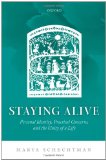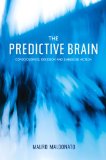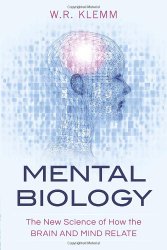new book – ‘Staying Alive: Personal Identity, Practical Concerns, and the Unity of a Life’ by Marya Schechtman
May 19, 2014
Staying Alive: Personal Identity, Practical Concerns, and the Unity of a Life by Marya Schechtman (Oxford University Press, 2014)
Book description from the publisher:
Judgments of personal identity stand at the heart of our daily transactions. Family life, friendships, institutions of justice, and systems of compensation all rely on our ability to reidentify people. It is not as obvious as it might at first appear just how to express this relation between facts about personal identity and practical interests in a philosophical account of personal identity. A natural thought is that whatever relation is proposed as the one which constitutes the sameness of a person must be important to us in just the way identity is. This simple understanding of the connection between personal identity and practical concerns has serious difficulties, however. One is that the relations that underlie our practical judgments do not seem suited to providing a metaphysical account of the basic, literal continuation of an entity. Another is that the practical interests we associate with identity are many and varied and it seems impossible that a single relation could simultaneously capture what is necessary and sufficient for all of them. Staying Alive offers a new way of thinking about the relation between personal identity and practical interests which allows us to overcome these difficulties and to offer a view in which the most basic and literal facts about personal identity are inherently connected to practical concerns. This account, the ‘Person Life View’, sees persons as unified loci of practical interaction, and defines the identity of a person in terms of the unity of a characteristic kind of life made up of dynamic interactions among biological, psychological, and social attributes and functions mediated through social and cultural infrastructure.
Google Books preview:
Life Story video: Bruce Hood, Galen Strawson, Marya Schechtman







